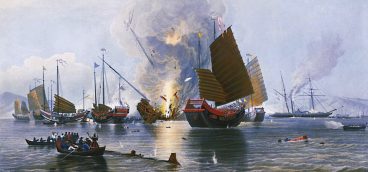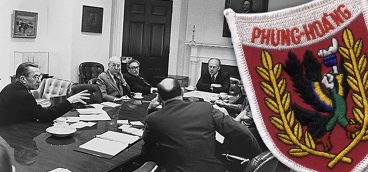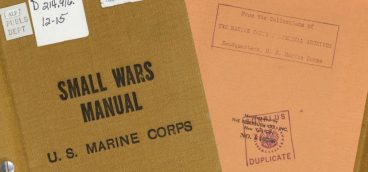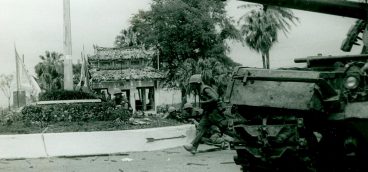The Real Lessons of the Iraq Wars
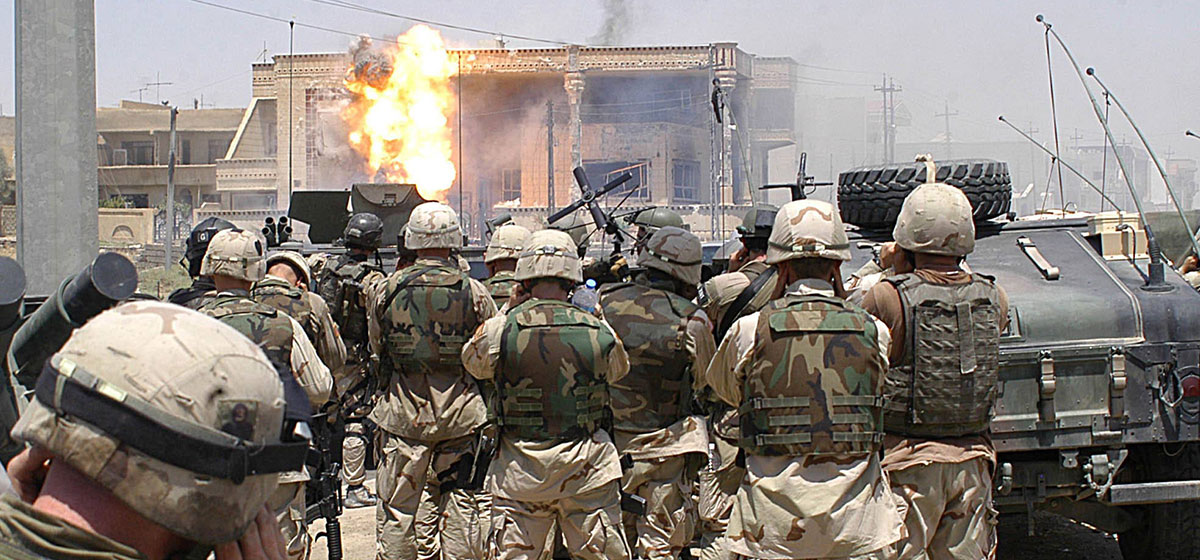
“If someone is victorious in battle and succeeds in attack but does not exploit the achievement, it is disastrous.” — Sun Tzu, “The Art of War,” Chapter 12
As we approach the end of this long series on The Art of Peace, let’s take a look at America’s adventures in Iraq.
Iraq I
Since the end of World War II, the only hostile U.S. military action that Americans are proud of was Iraq I, aka The Gulf War, aka Desert Storm. As we all well remember—well, those of us of a certain age, anyway—in August of 1990 Iraq invaded and occupied Kuwait.
No one much cared about Kuwait, which was governed by an unelected despot, but we certainly cared about its oil. Far more important, Kuwait lay between Iraq to the north and Saudi Arabia to the south, and if Iraq succeeded in capturing Saudi Arabia a murderous dictator named Saddam Hussein would control a majority of the world’s oil.
Even so, the prospect of the war was so unpopular, memories of Vietnam being still prominent in Americans’ minds, that Senate approval of a war resolution was highly uncertain.
The Kuwaiti government, which had fled its own country at the first sign of trouble, didn’t wish to leave anything to chance. They hired the American public relations firm, Hill & Knowlton, which, in a brilliant stroke, had a supposed Kuwaiti nurse testify before Congress to the horrific atrocities the Iraqis were committing in Kuwait. These included, inter alia, throwing newborn babies onto the hospital floor to die.
An enraged U.S. Senate promptly passed the war resolution, 52-47, after which it was discovered that the “nurse” was actually a member of the Kuwaiti royal family, wasn’t a nurse, and hadn’t even been in Kuwait during the Iraqi invasion. But, whatever.
A decade before invading Kuwait, and then crossing into Saudi Arabia, Iraq had invaded Iran, its neighbor to the east. Despite heavy assistance from, bizarrely, the United States, Iraq was in constant danger of losing the war. After eight years, a stalemate was accepted by both sides.
Notwithstanding Iraq’s inability to defeat the Iranians—not exactly a global hyperpuissance—Americans were led to believe that the Iraqi military was a fearsome force. The Iraqi army, we were told, was the fourth largest in the world. It was heavily equipped by the Soviet Union. Its Republican Guard and elite Medina Division were the equal of any troops in the world. The Iraqi Scud missiles were horrific weapons.
To face off against this terrifying force, America assembled an almost unbelievable coalition, headed by the United States but including forces from 37 other nations, many of them Islamic, forming the largest military alliance the world had seen since World War II.
But it turned out that Iraq proved to be what any thoughtful person would have expected it to be: a paper tiger. Iraqi forces were poorly trained, poorly equipped with out-of-date Soviet weapons, unmotivated and interested mainly in surrendering at the earliest possible moment.
A mere 100 hours after the ground assault against Iraq launched, the Iraqis sued for peace, their military all but destroyed. A mere 146 Americans died—fewer than the 400 Americans who died in highway accidents back home during that period. The vaunted Scud missiles had proved to be inaccurate duds, killing only by accident. During the brief period of hostilities Iraq managed to launch a mere 88 Scud missiles while, during that same period, Iraq was subjected to more than 100,000 bombing sorties.
Yes, the American military proved to be formidable, indeed, and American troops were disciplined and fought well. But so what? If the New York Yankees beat up a little league team, would we think more highly of them?
Desert Storm mainly accomplished what most would have thought impossible: sympathy for and indignation on behalf of Saddam Hussein, who had at least tried to stand up against the American bullies.
Far worse, having advanced to within 150 miles of Baghdad, a city that had been bombed back into a pre-industrial age, the Americans turned on their heels and went home. This left the criminal, Saddam Hussein, in place to continue his mischief and virtually guaranteed that another generation of American soldiers would have to return and finish the job.
General Norman Schwarzkopf, who commanded the coalition forces, returned home to a hero’s welcome. But Sun Tzu would beg to differ. As suggested in the quote that began this post, a general who fails to follow up his victories and finish off the enemy deserves not veneration, but beheading.
Iraq II
Sure enough, in 2003 the children of the Desert Storm veterans, ordered by the child of the President who ordered Desert Storm, returned to Iraq to fight a much bloodier war and finish the job that could have been accomplished far less painfully in 1990.
This time around, given that the Americans had to capture Iraq (and Saddam), the war took a bit longer: 20 days instead of four. It’s nice that the war was so short and that so few Americans died, but to those of us who served during the Vietnam era, Iraq I and Iraq II weren’t really even wars and certainly didn’t deserve all the emotional nonsense that surrounded the latter.
Imagine that Iraq II had happened under President Obama’s watch, and everything else had gone exactly as under Bush. In that event the very same people who so self-congratulatorily scorn the post-war mess would instead be focusing on the fact that Iraq is now a democracy, is no threat to the United States or its neighbors, and will even be an ally of President Biden as he attempts to ease tensions with Iran.
Among the big fans of Iraq II would be Gen. Sun Tzu. Saddam had kept the world in turmoil for 25 years, but within two years of the Iraq II invasion, Saddam was dead and Iraq was a democracy in the process of drafting its constitution. And all of it was accomplished at remarkably little cost. You can’t ask much more than that.


